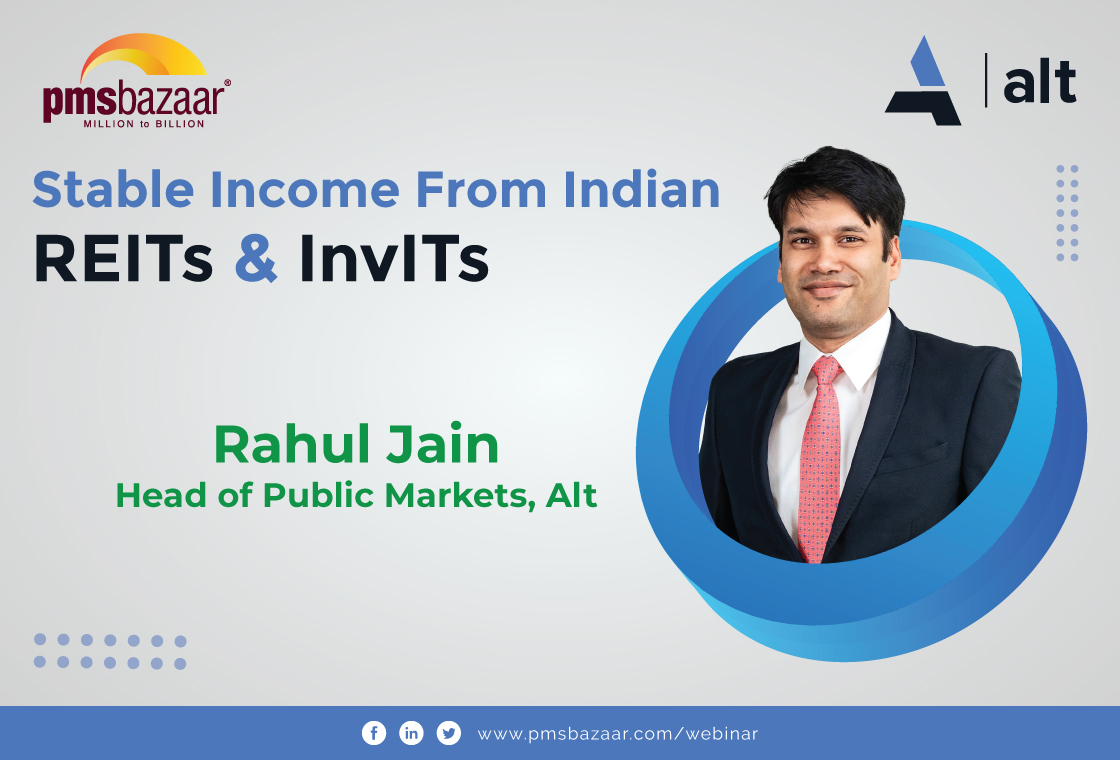Here is a summary of an interesting presentation from ASK on investment opportunities in the Indian residential real estate market from PMSBazaar Bengaluru Conclave 2024

Lakshmipathi C, Managing Partner – South, ASK Property Funds offered an elaborate explanation on the topic Indian Residential Real Estate Opportunities at the Bengaluru Conclave 2024 by PMSBazaar.
The presentation began with Lakshmipathi C, Managing Partner (South) at ASK Property Funds, outlining the Indian real estate market. He pointed to the current market size of around $650 million, which is projected to reach $1 trillion by 2030. This significant growth is expected to be driven by a series of structural and regulatory reforms implemented over the years.
He then shed light on the changes in the capital providers in the real estate market. Traditionally, banks were the primary source of funding for developers to acquire land. While private capital also existed, it came at a premium cost. This dynamic shifted in 2005 when the RBI (Reserve Bank of India) intervened. Recognising the slow development processes that led developers to hold onto land for extended periods, the RBI restricted banks from financing land purchases. This paved the way for the entry of Foreign Direct Investment (FDI) and Private Equity (PE) in 2005, providing a new source of capital for land acquisition. However, the global recession of 2008 had a negative impact on PE investments. Identifying this gap in the market, ASK Property Funds entered the scene in 2009, offering capital to finance land purchases for developers. NBFCs (Non-Banking Financial Companies) joined the lending scene in 2015.
Lakshmipathi’s presentation then veered towards the regulatory changes. The real estate industry in India has undergone significant transformations due to regulatory changes, fostering greater stability. He highlighted some of the key developments.
First, the insolvency law. This law protects home buyers and financial creditors by allowing them to initiate insolvency proceedings against developers who default on their obligations. This mechanism enforces financial discipline among developers, as they face a higher financial risk if they fail to meet their commitments.
Next on RERA (Real Estate Regulation and Development Act). RERA introduces a framework of regulations designed to ensure project completion, transparency in how funds are used, consumer protection for home buyers and more. Developers are mandated to register their projects, demonstrate clear land titles, adhere to approved construction plans and timelines, and deposit project funds into designated RERA accounts. Additionally, RERA discourages developers from deviating from the sanctioned plans and imposes penalties for violations.
All these regulatory and structural changes led to consolidation in the industry. Additionally, he highlighted that the liquidity crisis that emerged in 2016 forced NBFCs to withdraw from providing loans for land acquisition. The RBI further tightened its grip by restricting the practice of evergreening projects, which essentially involved extending loan terms to postpone repayments. This regulatory action, while challenging in the short term, ultimately pushed for greater financial prudence within the industry. As a result, the market witnessed consolidation, with the top 34 developers now controlling 28% of the market share (compared to a much higher 70% share held by the top developers in the US). On the demand side, several factors are driving growth, including favourable economic activity, rising incomes, increased affordability of housing due to market corrections, and stable mortgage rates.
Following the market overview, Lakshmipathi C provided background on ASK Group, a leading player in asset and wealth management with over Rs 85,500 crore in Assets Under Management (AUM) as of December 31, 2023.
The presentation concluded with a focus on ASK's property fund strategy. ASK identifies opportunities arising from the consolidation trend. Their approach emphasises controlled investments, conservative underwriting practices to assess risk, and maintaining a diversified portfolio by limiting exposure to any single developer group to not more than 30% of the fund corpus. Lakshmipathi also elaborated on ASK's special situations fund and its active management approach, which involves the ongoing monitoring and management of its investments.
Recent Blogs

MICRO CAPS: The Dark Horses of the Indian Equity Market
PMS Bazaar recently organized a webinar titled “MICRO CAPS: The Dark Horses of the Indian Equity Market,” which featured Mr. Rishi Agarwal and Mr. Adheesh Kabra, both Co-Founders and Fund Managers, Aarth AIF. This blog covers the important points shared in this insightful webinar.

Finding Clarity in Volatile Markets: A Large-Cap Led ASK CORE Strategy
PMS Bazaar recently organized a webinar titled “Finding Clarity in Volatile Markets: A Large-Cap Led ASK CORE Strategy,” which featured Mr.Anunaya Kumar, President – Sales and Distribution ASK Investment Managers Limited. This blog covers the important points shared in this insightful webinar.
.jpg)
Passively Active Investing — A Modern Investor’s Lens on ETF-Based PMS
PMS Bazaar recently organized a webinar titled “Passively Active Investing — A Modern Investor’s Lens on ETF-Based PMS,” which featured Mr. Karan Bhatia, Co-Founder and Co-Fund Manager , Pricebridge Honeycomb ETF PMs. This blog covers the important points shared in this insightful webinar.

Spot the Trouble: Red Flags in Equity Investment Analysis
PMS Bazaar recently organized a webinar titled “Spot the Trouble: Red Flags in Equity Investment Analysis,” which featured Mr. Arpit Shah, Co-Founder & Director, Care Portfolio Managers. This blog covers the important points shared in this insightful webinar.

Long-Only AIFs Rebound Sharply in October; Long-Short Strategies Lag Despite Lower Volatility
106 long-only AIFs averaged 3.68% vs 32 long-short AIFs at 2.7%; only 24–31% of funds beat key indices

Markets log strongest monthly gains in 7 months; PMS performance turns near-uniform in October
Nifty 50 TRI gained 4.62%, BSE 500 TRI rose 4.27%; 415 of 427 equity PMSes ended positive

How SMEs are Shaping India’s Investment Landscape?
PMS Bazaar recently organized a webinar titled “How SMEs are Shaping India’s Investment Landscape?” which featured Mr. Shrikant Goyal, Fund Manager, GetFive Opportunity Fund.

Stable Income from Indian REITs and InvITs
PMS Bazaar recently organized a webinar titled “Stable Income from Indian REITs and InvITs,” which featured Mr. Rahul Jain, Head of Public Markets, Alt.

